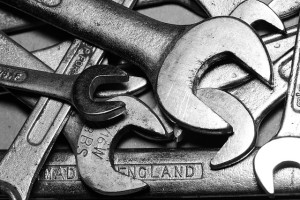 20
Feb
20
Feb
10 Automobile Maintenance Tips
TOP 10 CAR MAINTENANCE TIPS
Our automobiles are of great importance to us every day. They get us to and from work, to the grocery store, help get our children to and from school. The list can really go on and on. That is why it is of great importance to keep your car running smoothly and safely. J-N-J Auto Service, a Phoenix based mechanic & car maintenance shop shred the top 10 basic things you can do to enhance your car’s performance and longevity. These simple tips will go a long way in keeping your car in optimal shape, and perhaps even more importantly, keep your car and you safe.
Stick to the Service Schedule – This is perhaps the most obvious thing to do, and yet many car owners neglect it often. A car comes with a manual which describes the best way to service your car from the manufacturer’s perspective. Additionally, it helps to keep track of your car’s repair history by keeping the receipts handy.
Start off easy – If your car has been idle for a couple of hours, the oil has seeped down from the engine. So it’s recommended to start slow, and keep the rpm low for around 30 seconds if your car has been sitting for a while, because it takes a bit for the engine to get lubricated again.
Keep track of a dip in mileage – Take note of your car’s fuel economy. If you find that it’s guzzling too much gas, it could be a sign of something wrong in the engine, amongst other things.
Check Tire Pressures – This should ideally be done weekly. Tire pressure impacts fuel performance, comfort and handling of the car. Some cars come with pre-installed tire pressure checking mechanisms.
Tire rotation and alignment – Not only does this impact fuel performance, it is also very relevant from a safety perspective. The car manual mentioned earlier will have instructions on this.
Check Oil Levels – A car engine has a lot of moving parts, rubbing against each other. The friction thus generated has an adverse impact on engine performance, and an adequate oil level helps prevent that. When trying to find out the oil level, to get a clear reading, it’s best to clean the oil dipstick first and then dip it again to determine the oil level. Again, the manual will tell you how often you need to get the oil checked.
Check Coolant Levels – As mentioned earlier, the engine has moving parts, and they generate heat. To prevent your engine from over-heating, the radiator works along with the coolant.
Check Spark Plugs – Details about changing the spark plug should be mentioned in the car manual. However, if you experience things like difficulty in starting your car, or a sudden drop in mileage, spark plugs could be the underlying cause, in which case you will need to replace them with new ones.
Light Indicators – Some cars come with a lot of indicator lights (e.g. Check Engine Light, ABS Warning Light), which warn you if anything is amiss. It’s best to understand what these lights stand for, and what exactly they try to indicate.
Check Air Engine Filter – The engine operates on the combustion of a mixture of air and fuel. Therefore, the air entering your engine should be free from any debris or particulate matter. Keeping this in mind, your air filter needs to be replaced according to the recommendation of the manufacturer.





